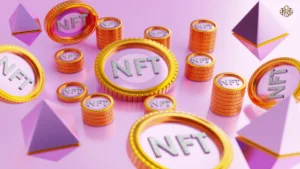
Close


NFT ticketing leverages blockchain technology to create, distribute, and manage event tickets as non-fungible tokens (NFTs). This innovative approach enhances security, transparency, and traceability in the ticketing industry. NFT tickets can be used for various events, including concerts, sports, and conferences, offering both event organizers and attendees numerous benefits.
NFT ticketing involves minting event tickets as unique tokens on a blockchain. These tokens contain all the necessary information about the event, such as date, venue, and seat number. When an attendee purchases an NFT ticket, the token is transferred to their digital wallet. This process ensures that each ticket is unique and verifiable on the blockchain, reducing the risk of counterfeiting and scalping.

One of the main advantages of NFT ticketing is enhanced security. Since each ticket is a unique token on the blockchain, it is nearly impossible to forge or duplicate. Additionally, NFT tickets can be easily transferred or resold on secondary markets, providing more flexibility for attendees. Event organizers can also benefit from lower costs and increased control over ticket distribution and pricing.
Despite its benefits, NFT ticketing faces challenges such as the need for widespread adoption of blockchain technology and digital wallets. Attendees must be comfortable using cryptocurrency and managing digital assets, which may present a barrier for some users. Furthermore, the volatility of cryptocurrency prices can impact ticket prices and transaction fees, adding another layer of complexity.
The future of NFT ticketing looks promising as more event organizers and attendees recognize its potential. Continued advancements in blockchain technology and increased familiarity with digital wallets are expected to drive adoption. As the industry evolves, NFT ticketing could become the standard for secure and efficient event ticket management, transforming the way people buy and sell tickets.